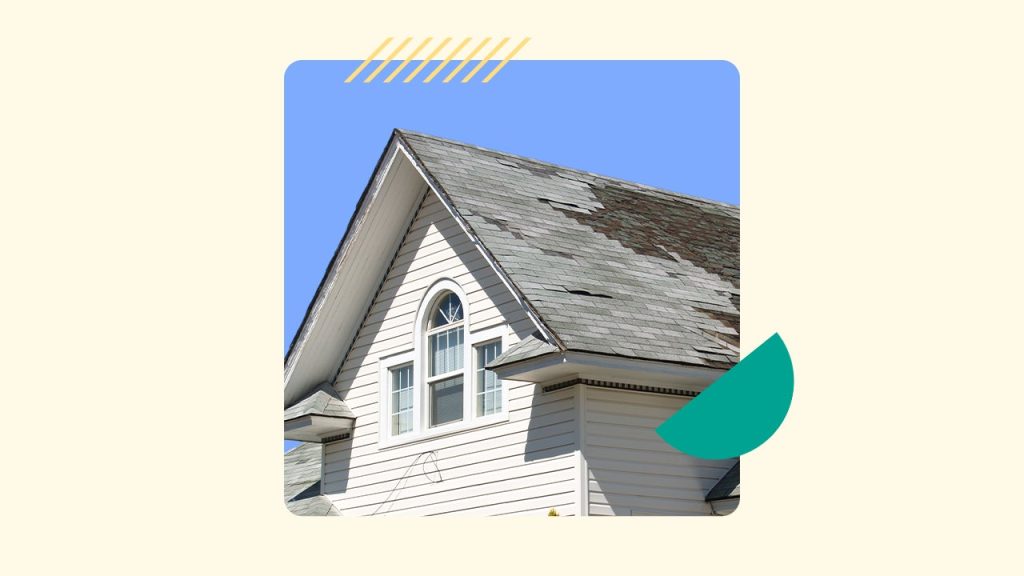As a homeowner, you typically have the ability to personalize your home insurance policy by purchasing endorsements. If you live in a community with a homeowners association (HOA), you might consider adding loss assessment coverage, which can provide financial protection if your HOA passes assessment fees onto its members. To help you make sense of this specialized coverage and whether or not you need it, Bankrate’s insurance editorial team explains what loss assessment coverage includes and how it can protect you from out-of-pocket costs.
What is loss assessment coverage?
If you belong to a condo or homeowners association, the HOA takes out a master or HOA insurance policy. This insurance product covers damages to common areas and buildings in your neighborhood. For instance, if you live in a single-family home development, this area might include common spaces like a swimming pool, tennis courts, playground and amenity center. A condo or townhome community’s policy might cover the residential structure itself, but not individual units.
If your HOA goes over its policy limit to repair damage or provide services, it may pass the extra cost onto its members. However, if you purchase loss assessment coverage — a home insurance policy endorsement — you could be protected from these additional costs. Typically, loss assessment coverage provides coverage against damage, liabilities and deductibles, although exact coverage varies among insurers.
What is covered under loss assessment coverage?
Although the details of a loss assessment coverage may differ from provider to provider, most include protection from three kinds of losses.
Damage assessments
When a common area in an HOA is damaged by a covered peril, the HOA’s master policy typically covers the damages. If the repair costs exceed the limit of coverage in the master policy, however, the HOA may assess members and require them to pay the difference. If the damages cost more than what the master policy will pay for, loss assessment coverage in an individual condo or homeowners insurance policy could cover the cost assessed to members.
Usually, HOAs will divide the remaining cost evenly among HOA members, but not all HOA bylaws or master policies are the same. It’s important to read the details in your contract or policy carefully before joining an association so that you are aware of all the costs you may be required to pay. If the master HOA policy is unclear, ask your association to clarify any areas that are confusing. You should request a copy of the master policy so that you can review it with your insurance agent before determining what individual coverage you need to purchase.
Liability assessments
Liability assessments include accidents in a common area. For example, when someone is injured in a common area of a residential development, such as the amenity center, parking garage, playground, swimming pool or tennis court, they might sue the HOA for damages. The HOA master policy typically has coverage for these instances. Once again, though, the cost of the settlement could exceed the liability limit in the master policy.
If liability damages that the HOA is held legally responsible for exceed the policy limits, members may be assessed for the remaining cost. The loss assessment coverage on your homeowners or condo owners insurance policy could protect you from having to pay these costs out of pocket.
Deductible assessments
When an HOA purchases a master policy, it also needs to choose a deductible amount for coverage. A deductible is how much the policyholder, which would be the HOA in this case, will pay out of pocket in a claim.
If the HOA’s common areas are damaged and the HOA has a high deductible, the cost of repair may be less than the deductible. In this case, the master policy will not cover the damages and the HOA might assess members to pay for the costs of repair. The HOA may also place a special assessment on owners for having to pay the deductible, even if the claim is covered by the master policy. Loss assessment coverage can help to protect members from deductible assessments by paying the member’s share of the cost up to the limit of the coverage.
Do I need loss assessment coverage?
Insurance is a highly personalized product and loss assessment coverage is no exception. If you are a home or condo owner with an HOA, consider if you need coverage for financial protection before you purchase a loss assessment endorsement.
To help you determine whether or not to purchase loss assessment coverage from your home insurance provider, you might ask yourself:
- Could I financially cover the additional costs if a risk assessment occurs?
- Is loss assessment coverage already included in my home insurance policy?
- How does my HOA handle assessments?
- How much would loss assessment coverage cost if I added it to my policy?
- What coverage limit do I need?
Consider this scenario when determining if loss assessment coverage is right for you and how much to purchase. If a storm causes $500,000 in damage to the amenities in a shared area and an HOA master policy only has $400,000 in coverage, there is an excess of $100,000 that would likely be assessed to the homeowners. If the policy has a high deductible of $25,000, the association may also assess the cost of the deductible among the owners in the community. Loss assessment coverage could help you to cover the cost of your share of the assessment.
How to buy loss assessment coverage
Loss assessment coverage is offered by most home insurance providers. When signing up for a condo, townhome or homeowners insurance policy, loss assessment will typically be offered by the provider as an optional coverage that can be added to your policy as an endorsement.
When deciding how much coverage to purchase, consider the number of residents in your neighborhood and what kind of common areas the HOA provides. Common areas can include swimming pools, playgrounds, the lobby, elevators, parking lots and other places people may get injured or could be costly to repair. These factors could increase the chances of an assessment and increase the amount of that assessment.
Frequently asked questions
-
If an HOA needs repairs that far exceed the master policy’s coverage limits, members could end up paying a lot of money in the form of a special assessment. Being assessed for guest injuries or other damages are also reasons you may purchase loss assessment coverage. Take these factors into consideration when purchasing loss assessment coverage, which is generally affordable even at higher limits.
-
When an HOA is found to be liable for a loss covered under the master policy, that policy will pay up to the limit of coverage. If the loss exceeds the limit of coverage or if the master policy has a high deductible, the excess loss and deductible cost passed to members is a loss-based assessment.
-
If the guest wins the lawsuit and the HOA has to pay damages that exceed the limits of coverage in the master policy, the HOA could assess members for the remaining cost. In this case, having loss assessment coverage in place ahead of time could help mitigate the financial burden of the additional expenses incurred in settling the suit.
-
The triggering event for a loss assessment claim is the moment that you receive a letter from your HOA informing you of a loss assessment; it is not the moment that the event that caused the loss occurred. Once you receive the letter from the HOA, you can submit the claim to your insurance provider under your loss assessment coverage. If approved, your insurance provider will pay the assessment fee in part or in full, depending on your level of coverage.
-
Loss assessment coverage is typically available through your insurance provider as an endorsement on your existing homeowners insurance coverage. In most cases, this endorsement will carry a low cost that will be added to your existing premium, so it might not affect your average home insurance cost very much. However, the exact amount will depend on the level of coverage that you purchase.
Read the full article here










